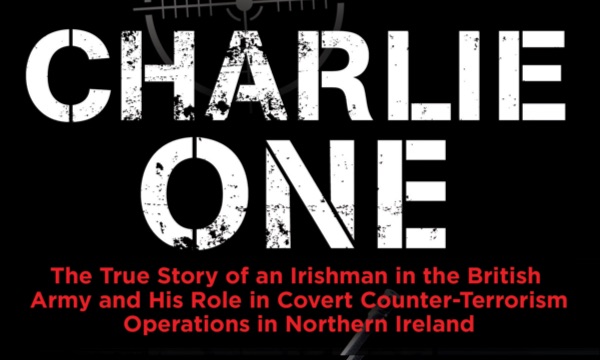
The British Ministry of Defence (MoD) has attempted to suppress a book by a former soldier about his involvement in ‘dirty tricks’ operations in the north of Ireland.
The MoD has informed Merrion Press, publisher of ‘Charlie One’, that it is “assessing the damage caused to Britain’s national security” by the book. It accused the author, who works as a security consultant in Ireland, of breaching a ‘special forces confidentiality agreement’. It also accused the author of breaching Britain’s Official Secrets Act.
Conor Graham, the publisher at Merrion Press, said he had no plans to withdraw the book from shops or cancel its planned release in Britain.
“We are seeking legal advice on the solicitors’ letters and calls we have received from the Ministry of Defence, but we are not withdrawing the book,” he said.
“The MoD has asked us to halt distribution. They basically said they know who the author is and claim the contents of the book pose a threat to Britain’s national security. They have asked us not to distribute it until they can assess the implications. We don’t believe there is an obligation on us to do this.”
In his book, Sean Hartnett (not his real name) writes about ‘North Det’, a secret military unit based in Shackleton Barracks in Derry that spied on targets by breaking into their homes and cars. It planted miniature cameras and listening devices in weapons dumps. The book claims ‘North Det’, formerly known as the Force Research Unit, had an extensive network of CCTV cameras and listening devices in Derry city.
Hartnett also alleges ‘North Det’ was prepared to carry out a planned ‘shoot-to-kill’ assassination of members of the breakaway Real IRA in 2002, but did not proceed for operational reasons.
HUMAN RIGHTS IMMUNITY FOR BRITISH TROOPS
Meanwhile, the British government has said it plans to exempt members of the Crown Forces from prosecution under the European Convention of Human Rights.
British Defence Minister Michael Fallon unveiled plans at the Conservative party conference which will mean that British soldiers in conflict situations will no longer be bound by two key articles of the charter - the right to life and the right to liberty.
It could have profound implications for efforts to deal with the past conflict in the north, as it could undermine recently proposed bodies to deal with legacy issues.
The move was immediately condemned in a statement issued by Sinn Fein’s Martin McGuinness.
“This move signals yet another attempt by the British government to effectively make its military immune from prosecution,” he said.
Mr McGuinness also criticised the British government’s justification of the exemption as an attempt to protect their forces from ‘vexatious’ claims.
“For British Ministers to argue they are protecting their soldiers from so called ‘vexatious’ claims is a complete distraction,” he said.
“In reality, this is about protecting them from prosecution and protecting their government from embarrassing and costly cases which expose the illegal actions being carried out in the name of the British people.
“The British government has already been forced to pay out 20 million pounds in 326 cases to date. There’s nothing vexatious about such cases. They are obviously cases with substance or compensation wouldn’t have been paid.”
![[Irish Republican News]](https://republican-news.org/graphics/title_gifs/rn.gif)
![[Irish Republican News]](https://republican-news.org/graphics/title_gifs/harp.gif)

